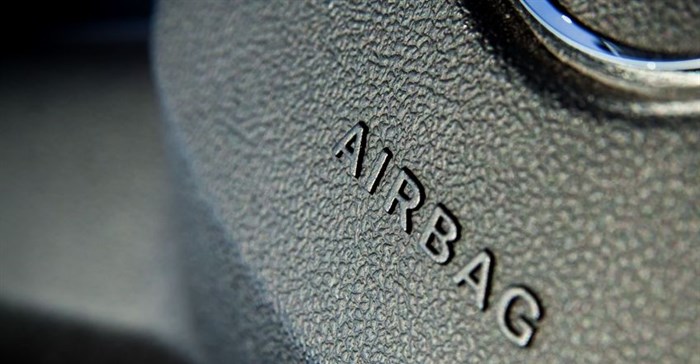TOKYO: Takata's shares plunged 20% in Tokyo on Wednesday, 30 March, after Bloomberg News said the recall-related costs facing the Japanese airbag supplier could be as high as $24bn.
Citing a person familiar with the matter, Bloomberg said the company estimated the "worst case" scenario would involve the recall of 287.5-million airbag inflators at a cost of as much as 2.7-trillion yen ($24bn).
Takata and its automaker clients are still hashing out how the costs would be shared, the source said.
A Takata spokesperson was not immediately available to comment.
Takata plunged 19.45% to 414 yen, its daily loss limit, in response to the report published shortly before Japanese markets closed.
The whopping estimate comes as Takata struggles to deal with the inflator defect that can cause airbags to deploy with explosive force.
This sends metal and plastic shrapnel hurtling toward drivers and passengers - in some cases killing them or causing grisly injuries.
At least ten deaths have been linked to the airbag ruptures and some 50-million Takata airbags have been recalled globally, including some 28-million in the United States.
In February a coalition of the world's best-known automakers, including Toyota, General Motors and BMW, said it had identified the key culprit behind the defect.
Its report found that the combination of a lack of water-absorbing chemicals, inadequate design and high temperatures could cause the airbags to rupture.
Those findings were in line with long-held suspicions that the chemical used to inflate Takata airbags can be unstable, especially in hot and humid conditions.
Also in February an independent panel advised the under-fire auto parts supplier - which has been accused of covering up the problem for years - to improve management oversight and automation to help move past the crisis.
Takata's programme for monitoring the quality of its airbags, installed in tens of millions of cars worldwide, was poorly designed and structured and relied too much on the automakers' oversight, the panels' report found.
It also pointed to one potential immediate problem with the airbags: the inflator propellant is often loaded by hand, not machine, potentially leading to mistakes.
Other key weaknesses pinpointed in Takata's corporate organisation were the fact that product designs can move to production even with outstanding questions unresolved.
Source: AFP






































